We Bake Happiness
How a Venezuelan couple is making their dreams come true as entrepreneurs in Peru
The value of a dream
In 2017, Adriana Pabón left her house in Mérida, in the middle of the Andes of Venezuela, on her way to Ibarra in Ecuador. She packed two suitcases and a bread oven. A week after arriving in her new home, she dreamed of cupcakes. The next day, she baked five dozen cupcakes and took a bus to the town of Cotacachi, an hour away from Ibarra, with her sweet hopes placed in transparent bags. The rain began to fall so hard that the bus driver could barely see through it.
When she reached her destination, the water seemed to come out of the ground as well. Instead of whining, she approached all the stores and offered her cupcakes. She sold everything in 30 minutes.
At that moment I realized that not even the rain would stop me,” said Adriana.
She is one of 5 million Venezuelans who have been forced to emigrate in the last decade due to dire economic and political conditions at home. Many need help in establishing a new livelihood in their host country.
In 2020, USAID began supporting the World Council of Credit Unions’ Economic Inclusion Project in Peru and Ecuador, which works to improve Venezuelans’ socioeconomic security by encouraging business development and facilitating access to financial services.
To date, more than 8,000 Venezuelans and locals in Peru and Ecuador have obtained access to financial services (a credit, savings, or insurance product) and 3,300 have an improved capacity to establish a sustainable livelihood. Adriana is one of them.
Family traditions take on new life
Adriana’s grandfather was born in Colombia and came to Venezuela at a time when the plains country was one of the most stable in the continent. He was a baker and used to get up before the roosters started crowing to deliver his sourdough, pleasing the whole neighborhood with his talent. But when he passed away neither his children nor his grandchildren continued his legacy.
Adriana studied business administration at the Universidad de los Andes. She wanted to start her own business, but her plans had nothing to do with ovens or dough. But plans change.
When the situation in her country worsened and she plotted her departure, Adriana began practicing baking at her home. She wrote down recipes and began to familiarize herself with different types of bread.
If I leave my country, I must have a job to live,” Adriana thought.
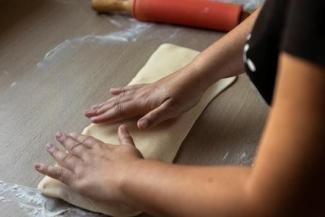
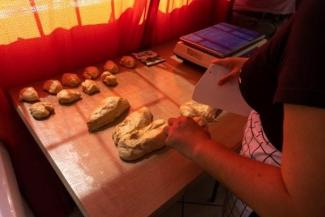
Love adds
Adriana spent almost all her savings to move to Quito. In addition to the troubles in Venezuela, she had a good excuse to relocate to the capital of Ecuador: José Díaz. Reconnecting with him marked a reunion with a love from her youth who was in the same position as her: fighting every day.
Once she arrived in the country, they started a business together, bought ingredients and went out every day to sell cupcakes. José was amazed at Adriana’s pastry skills. Still, no matter how many cupcakes they sold, there still wasn’t enough money to start saving.
José finalizing the bread.
Above: José finalizing the bread. Below: José in the process of preparing the bread dough.
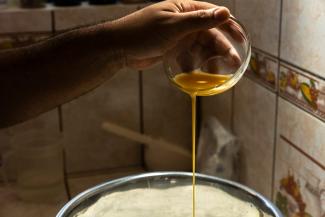
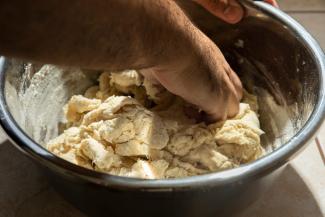
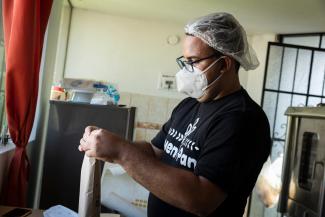
Winds of change
Adriana’s mother also left Venezuela during this time, but her destination was Lima. In a month, she had made more money selling apple pies and empanadas in a market than Adriana and José had earned over several months in Ecuador. Soon enough they were on a bus to Peru.
In Lima, they began to sell coffee and bread at traffic lights. Then, José got a job as a pharmacy manager and Adriana was hired as a housekeeper. They worked to survive, but Adriana’s dream of creating her own business did not go away.
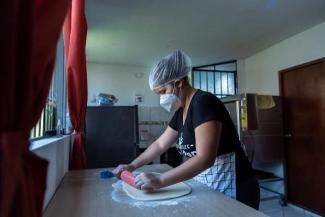
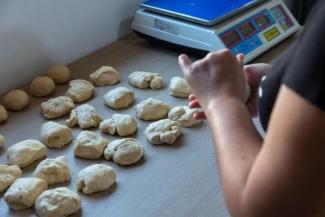
Hands to the dough
In July 2018, Adriana and José married and moved into an apartment. It was small, but they liked it, especially the huge window that allowed them to breathe. With their savings, they bought a bread oven to replace the one Adriana brought from Venezuela and started their own side business: Buen Pan (Good Bread).
They learned how to make a logo online, and even created their own social media pages across several platforms. Their idea was to make a product of high quality with good supplies that their customers would appreciate.
The Venezuelan expat community became Jose’s client base.
“In mid-2019, the Union Venezolana NGO in Peru offered a free social media course for entrepreneurs. They opened our eyes. We improved our social networks and started promoting our business,” said José, with a fresh smile full of pride.
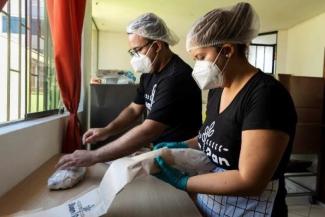
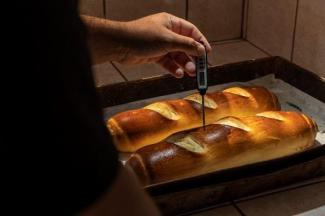
But then, the pandemic arrived in March 2020, changing everything.
According to the United Nations High Commissioner for Refugees, two out of every three Venezuelan migrants in Peru were impacted by the triple crisis: COVID-19, a cratering economy, and political chaos. Peru now hosts over 1 million displaced Venezuelans, a massive increase from 7,000 in January 2016. The surge in migrants places Peru as the second-largest recipient of Venezuelans and the largest host of Venezuelan asylum seekers worldwide.
Jose and Adriana decided to make the best of the situation.
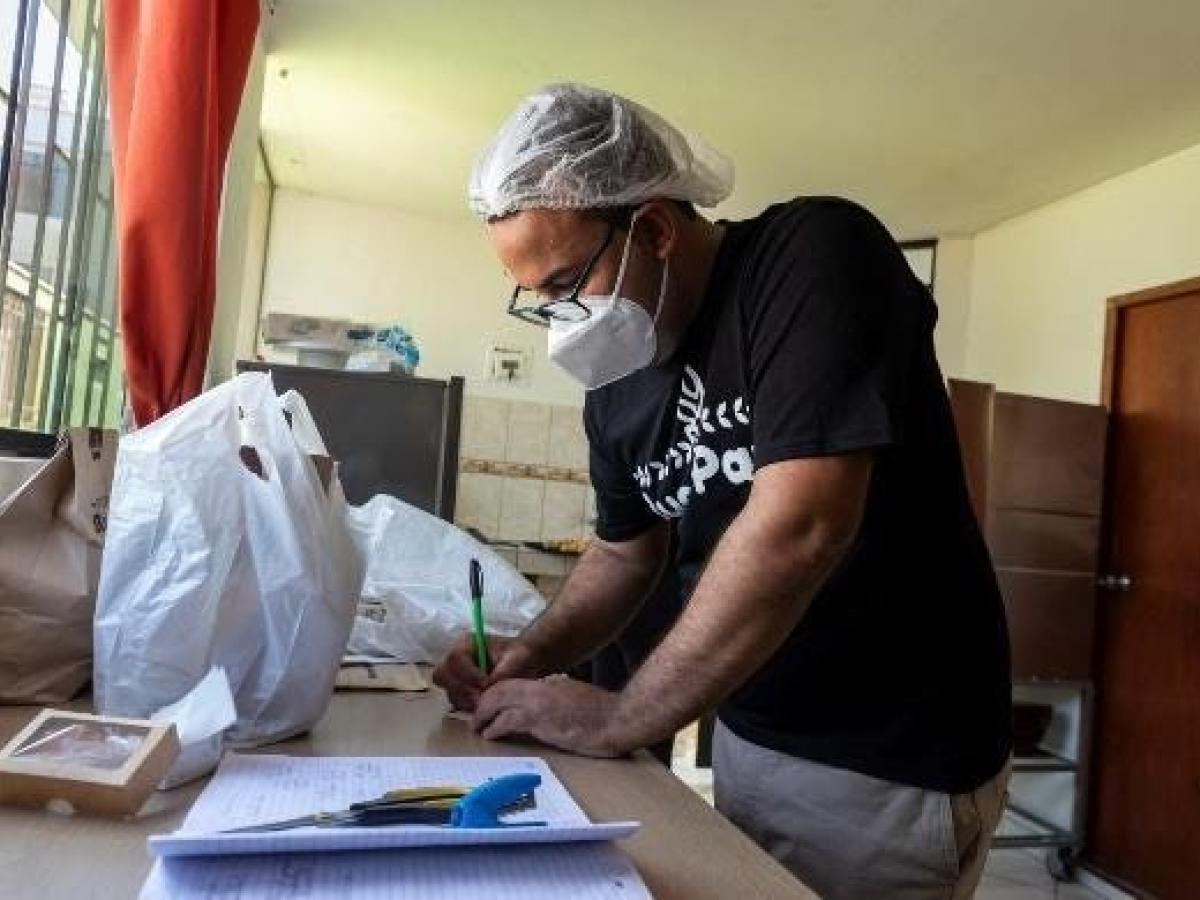
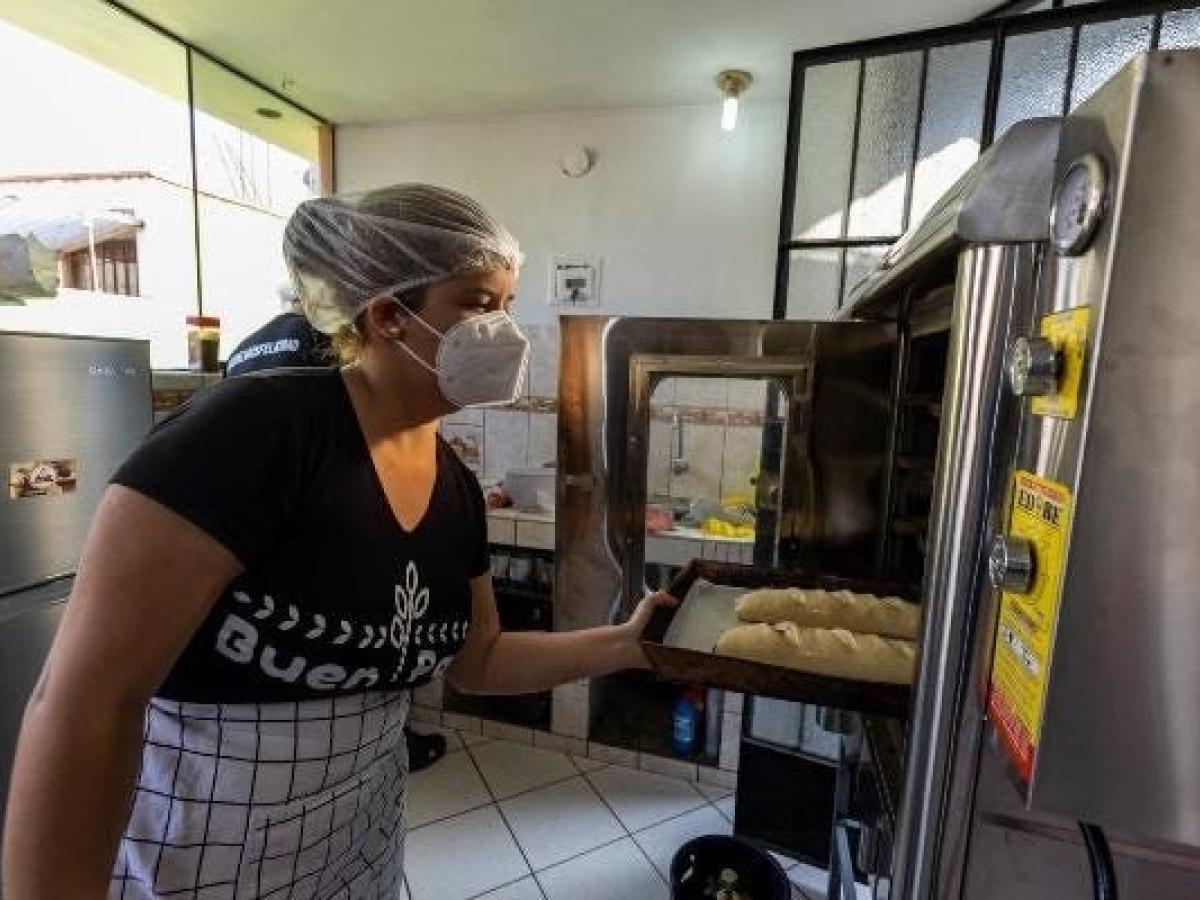
After losing his job, Jose participated in training courses at the NGO Union Venezolana’s School of Dreamers, supported by USAID through the Economic Inclusion Project.
It was exciting, it opened my eyes. It was a before and after. I thought I knew, but I realized that I did not know enough. They trained me in finance, social networks, trademark registration, creating a business model, and customer relations,” said Jose.
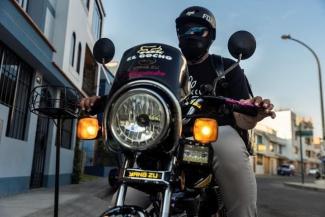
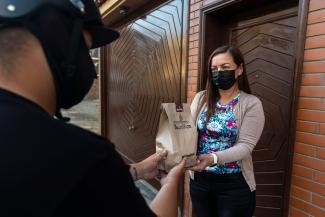
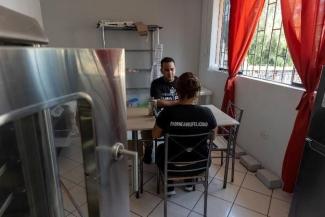
By December 2020, sales were improving. The knowledge from the School of Dreamers was paying off, but they needed an extra boost. Adriana successfully applied to the School of Dreamers’ Seed Capital Fund. With a seed capital of $1,000 they were able to buy a bigger oven with double capacity.
Now, they work in double shifts to bake bread with no additives, preservatives, or chemicals, and to deliver it via motorcycle as fresh as possible each day to houses, apartments, and offices.
Adriana showing the product of her business “The Good Bread.”
They have grown their Instagram audience to more than 12,000 followers. As a result, now Jose makes sales through social media networks, which is easier than doing it on the street. Meanwhile, Adriana now teaches baking.
Without intending to, this woman from Mérida, Venezuela, is following the same path as her grandfather, showing that it is good to pay attention to dreams and pursue them.
In just 10 months, USAID and the World Council of Credit Unions have supported training for more than 2,000 Venezuelans and Peruvians in Lima, generating opportunities that are changing lives.
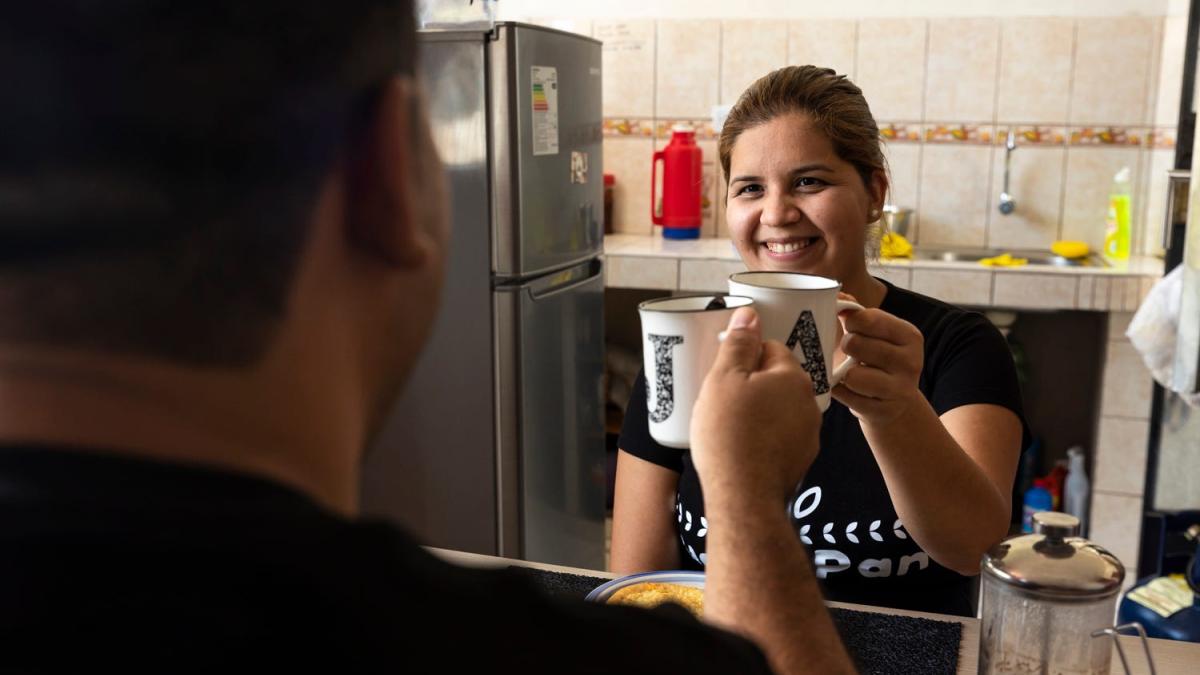
Adriana and Jose drinking coffee during a moment of rest in their kitchen.
Diego Perez for USAID
ABOUT THIS STORY
Venezuelans have been forced to emigrate due to dire economic conditions at home and many need help in establishing a new livelihood in their host country.
USAID works to support the World Council of Credit Unions’ Economic Inclusion Project (WOCCU) to improve the economic security of Venezuelans and local people in vulnerable situations through activities that support labor market insertion, strengthen microenterprises and facilitate access to financial services.
ABOUT THE AUTHORS
Julissa Nuñez is the Communications Coordinator at World Council of Credit Unions, and Magali Ugarte is a Communications Specialist at USAID’s Mission in Peru and the Agency’s South America Regional Program.
Photos by Diego Perez for USAID.



